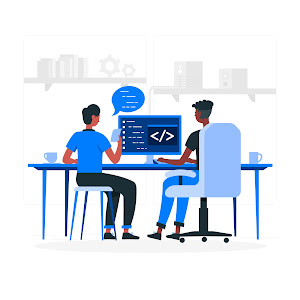In today's rapidly evolving tech landscape, full-stack developers are in high demand, and the MERN stack has become a popular choice for web development. The MERN stack comprises four powerful technologies: MongoDB, Express.js, React.js, and Node.js. This stack enables developers to build end-to-end web applications using JavaScript, creating seamless interactions between the front end and back end. To succeed as a MERN stack developer, possessing the right skill set is crucial. This article will explore five essential skills that every aspiring MERN stack developer should master: JavaScript & ES6+, React.js, Node.js & Express.js, MongoDB, and version control & deployment.
1. JavaScript & ES6+
JavaScript is the backbone of the MERN stack, serving as the primary programming language used in both front-end and back-end development. Proficiency in JavaScript is non-negotiable for any MERN stack developer. ES6 (ECMAScript 6) and beyond introduced new features that significantly improved the language's capabilities and made development more efficient. Concepts like arrow functions, destructuring, classes, and modules allow developers to write cleaner, more concise code.
Understanding how to manipulate the Document Object Model (DOM), handle events, and make asynchronous requests (using promises or async/await) is vital. Furthermore, MERN stack developers must be comfortable with JavaScript design patterns and best practices to build scalable and maintainable applications.
2. React.js
React.js, the front-end library in the MERN stack, is used to build interactive and responsive user interfaces. It allows developers to create components, making it easier to manage and reuse code. A solid understanding of React's component-based architecture, JSX (JavaScript XML), and lifecycle methods is essential for crafting seamless UIs.
Moreover, developers should be proficient with React hooks such as useState and useEffect, which enable efficient state management and side-effect handling. As applications grow more complex, understanding state management solutions like Redux or the Context API becomes important to ensure that data flows efficiently throughout the app. React Router, which enables navigation between different views, is another important tool that MERN developers should master to ensure seamless routing and navigation within the application.
3. Node.js & Express.js
Node.js allows developers to write server-side code using JavaScript, while Express.js is a lightweight web framework that simplifies the process of building APIs and web servers. Together, Node and Express form the backbone of the back-end in the MERN stack.
A strong understanding of how to build and manage RESTful APIs, including handling HTTP requests, responses, and routing, is key for building scalable applications. Express’s middleware functions allow developers to perform tasks like logging, authentication, and error handling. Additionally, skills in managing security (such as protecting against common threats like SQL injections or cross-site scripting) are vital for creating robust and secure applications.
4. MongoDB
MongoDB is a NoSQL database that stores data in JSON-like documents, making it highly flexible and scalable for modern applications. MERN stack developers need to know how to design and manage schemas, as well as perform CRUD (Create, Read, Update, Delete) operations efficiently.
Understanding MongoDB's aggregation framework for complex queries, indexing for performance improvement, and the ability to work with embedded documents and references are important for optimizing data management. Proficiency in MongoDB also involves learning how to integrate it with Node.js applications using the Mongoose library, which simplifies data modeling.
5. Version Control & Deployment
Version control, particularly using Git, is a crucial skill for collaboration and managing codebases. Git allows developers to track changes, manage branches, and collaborate with teams through platforms like GitHub. It's essential for ensuring that code changes are documented, reversible, and easily merged.
Equally important is knowing how to deploy applications. MERN stack developers should be familiar with cloud platforms like AWS, Heroku, or DigitalOcean to deploy and maintain applications in production. Additionally, setting up Continuous Integration and Continuous Deployment (CI/CD) pipelines ensures that updates to applications are deployed smoothly and automatically, allowing teams to focus on development rather than manual deployment tasks.
Conclusion
The MERN stack is a versatile and powerful choice for full-stack web development, allowing developers to build highly scalable, modern applications. However, success as a MERN stack developer hinges on mastering key skills. Proficiency in JavaScript & ES6+ lays the foundation, while expertise in React.js helps create interactive front-end interfaces. Node.js & Express.js provide the back-end framework needed to build robust servers and APIs, while MongoDB handles scalable and flexible data storage. Lastly, version control and deployment skills ensure smooth collaboration and seamless project management. By honing these five must-have skills, developers can excel in MERN stack development and thrive in the competitive world of web development.










0 Comments